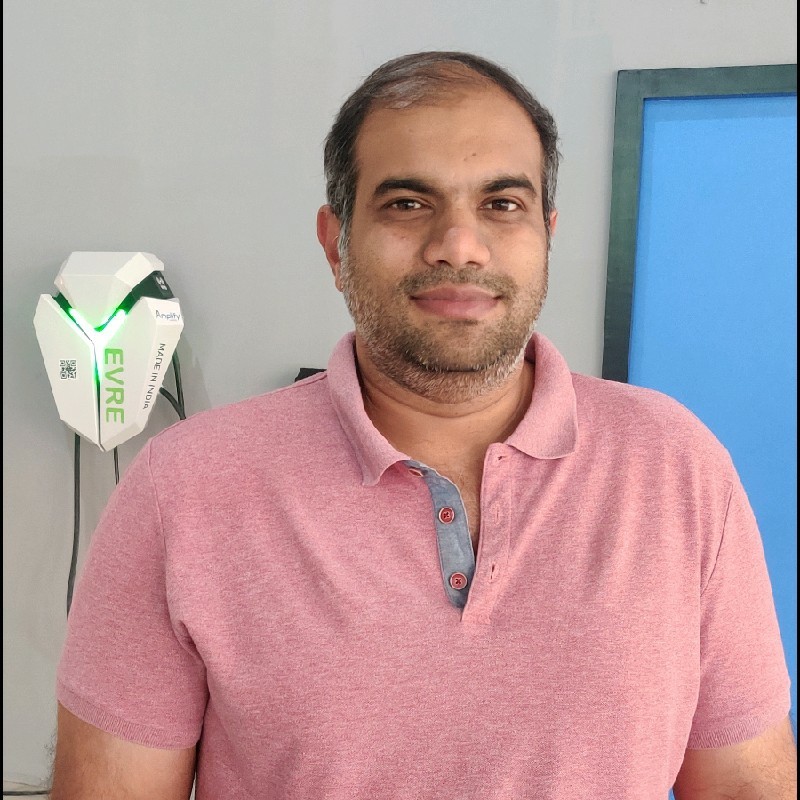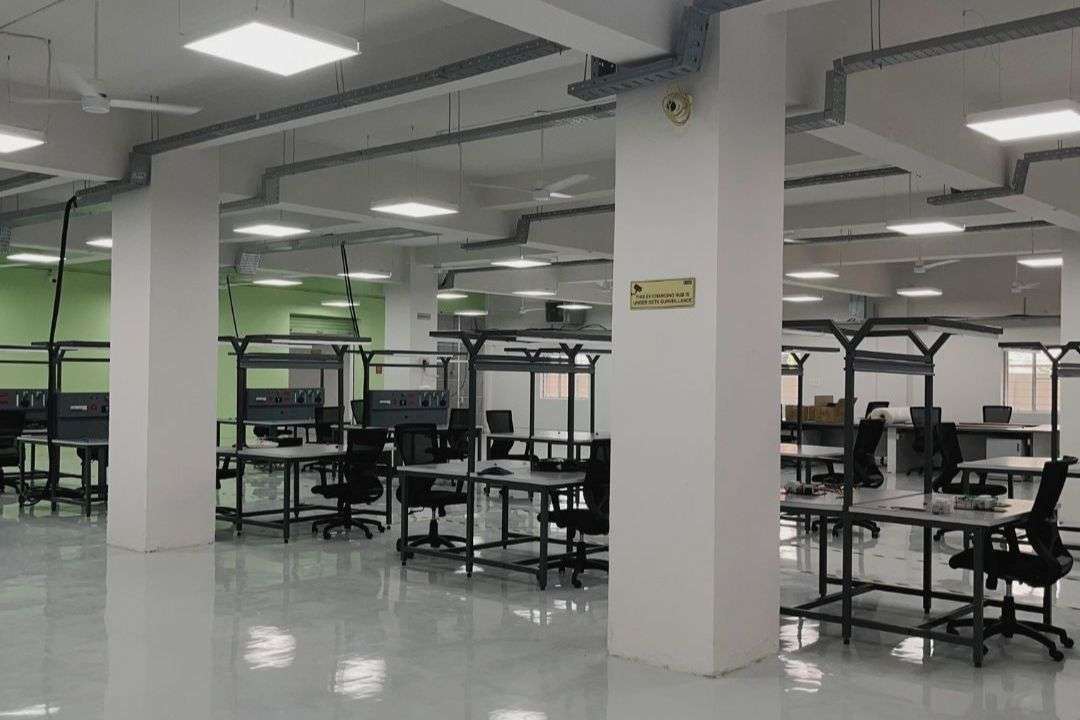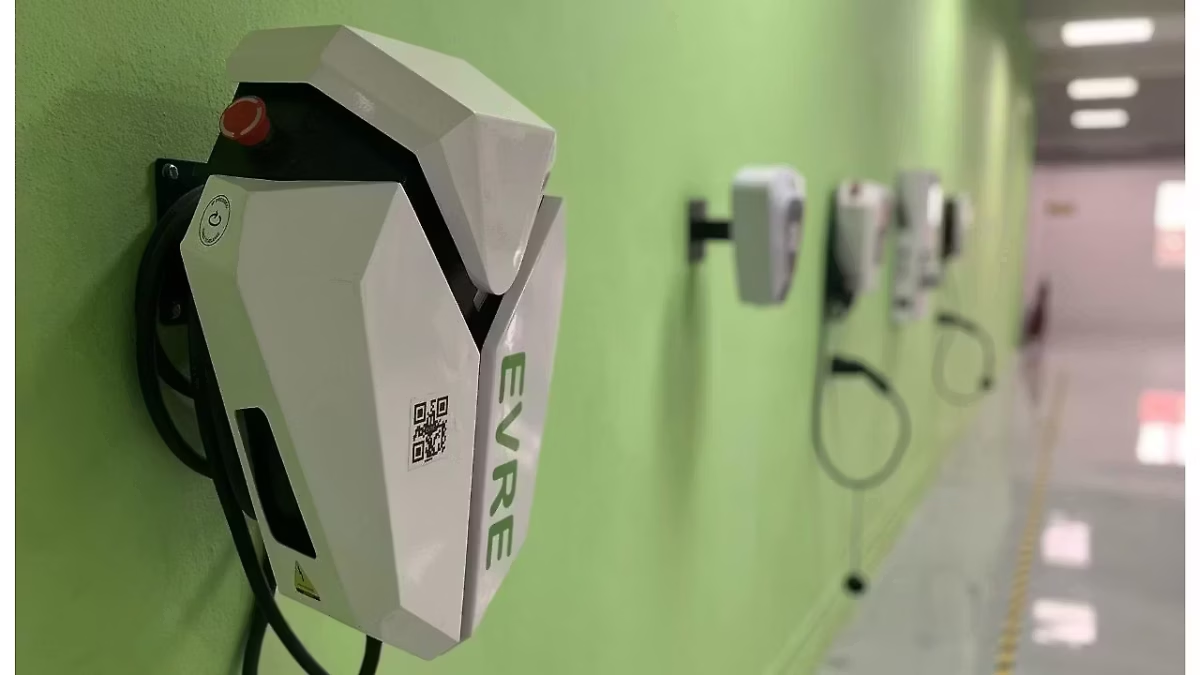As India accelerates its transition to electric mobility, charging infrastructure is fast emerging as the linchpin for sustainable growth. Building chargers that are not only efficient and smart but also resilient against India’s unique challenges—from supply chain dependencies to extreme weather—is no small task. EVRE, one of India’s leading EV charging ecosystem enablers, has been addressing these very issues through innovation, localization, and forward-looking design. In this exclusive Q&A, Mr. Krishna K Jasti, Founder & CEO of EVRE, sheds light on how the company is navigating global supply chain risks, embedding intelligence into its chargers, scaling production, and creating fleet-ready solutions while ensuring safety and reliability across diverse geographies.

With rising global concerns around rare earth material sourcing, how is EVRE ensuring long-term sustainability and supply chain resilience in its charger components?
Geopolitical supply risks, as seen in recent times, and manufacturing or transportation disruptions, like those experienced during COVID-19, pose significant challenges to industries worldwide. EVRE is addressing these risks through the following strategies:
a) Enhanced Localization: Approximately 70% of components, including power electronics, PCBs, connectors, and enclosures, are sourced domestically within India. This approach significantly reduces dependence on imports and strengthens supply chain resilience.
b) Modular Design: EVRE’s modular EV charger designs enable swift replacement of critical imported components, such as semiconductors. This flexibility allows the company to adapt quickly and utilize alternative components when necessary.
c) Circular Economy Practices: Emphasizing sustainability, EVRE is committed to reusing and recycling materials wherever possible. Global studies suggest that effective recycling methods could reduce reliance on rare earth materials by 15% to 20%. While the EV charging industry in India is still in its early stages, EVRE aims to adopt and align with best practices in the circular economy.
As smart and connected charging becomes the norm, how is EVRE integrating features like dynamic load management, remote diagnostics, and real-time monitoring into its chargers?
Though these may seem like straightforward, commonly used terms, each addresses a critical challenge for EV charging companies and users alike. At EVRE, we believe that creating smart products goes beyond checking a box—it’s about solving real problems and enhancing user experiences.
a) Dynamic Load Management: This technology optimizes power usage in locations with multiple EV charging stations, such as hubs and residential communities. Depending on the use case and charger types, implementing an optimized solution can be complex. EVRE’s dynamic load management system reduces the total required load to approximately 25% of the connected load by enabling throttled and scheduled charging.
b) Remote Diagnostics: Maintaining maximum uptime for EV chargers requires real-time health monitoring and the ability to predict potential failures before they occur. EVRE has developed a Diagnostic Server that receives data from all its chargers based on preset triggers. This system enables early detection of issues, allowing proactive resolution to minimize disruptions.
c) Enhanced Connectivity: This capability is essential for EV users to locate, access, and pay for charging services. Since chargers are often deployed in diverse settings, from basements to remote areas, ensuring reliable internet connectivity is critical. EVRE supports a range of communication options, including Wi-Fi, Ethernet, and 4G, across all its products to ensure seamless real-time data transmission.

How is your Hyderabad plant enhancing EVRE’s production efficiency and supporting the scaling up of advanced charger technologies across India?
EVRE’s new facility has an initial production capacity of 5,000 chargers per month, with plans to scale up to 10,000 chargers per month by 2026. The plant features advanced automated testing benches for PCBs, individual components, and fully assembled chargers, enabling faster testing cycles, reducing manual errors, and ensuring consistent quality. Each unit undergoes comprehensive test reporting, enhancing traceability and facilitating quick detection and resolution of defects.
In a market moving towards fleet electrification, what specialized solutions is EVRE offering for commercial fleets and logistics hubs that require high uptime and quick turnaround?
EVRE has created a robust and highly scalable charging ecosystem designed specifically for commercial fleets and logistics hubs. With a strong focus on maximizing uptime, overcoming operational challenges, and streamlining processes, EVRE delivers solutions that cater to the unique needs of these users.
As both a charger manufacturer and charge point operator, EVRE has a deep understanding of end-user challenges. Leveraging an active feedback loop, the company continuously improves its products to address these issues and enhance the overall user experience.
a) Commercial-Grade Reliable Chargers: EVRE designs durable chargers built to handle diverse user behaviors, ensuring high reliability and consistent performance.
b) Dynamic Load Management: EVRE’s advanced dynamic load management technology ensures efficient energy distribution across multiple chargers, facilitating rapid turnarounds while preventing strain on local infrastructure.
c) Hub Monitoring: Fleet charging hubs require more than functional chargers—they demand comprehensive oversight of all equipment. EVRE’s solutions provide end-to-end monitoring, including driver and vehicle management, to optimize operations.
d) Integrated Computer Vision: EVRE’s patented computer vision platform automates user authentication for fleets using EV number plate recognition, eliminating the need for manual operators. Additionally, it provides detailed EV-specific charging pattern data for better fleet management.
Given India’s power fluctuations and extreme weather zones, how does EVRE design chargers that ensure safety, reliability, and consistent performance across urban and rural deployments?
EVRE designs its chargers to endure India’s unique challenges, including power fluctuations, extreme weather conditions, and varied environments—from urban heatwaves to rural monsoons—ensuring reliable and safe performance across all settings:
a) Rugged Enclosures: EVRE chargers feature enclosures with high IK and IP ratings, offering robust protection against rough handling and adverse weather conditions.
b) Power Surge & Voltage Fluctuation Protection: The chargers are equipped with comprehensive safety features, including protections against earth leakage, overloads, short circuits, over- and under-voltage, insulation issues, ground faults, overheating, and smoke. These measures safeguard the chargers, users, and surrounding facilities.
c) Real-Time Monitoring & Automated Safety: Integrated systems continuously monitor for voltage dips, earth faults, overheating, or smoke, and automatically reroute or disconnect power as necessary to maintain safety.

